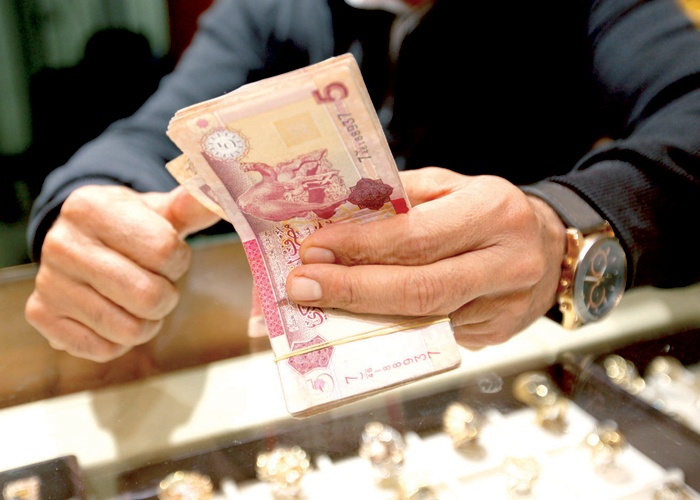Kuwait lost $2.7 billion of its foreign reserves in March which is about 5.74% of its value compared to last month.
Kuwait’s reserves recorded their lowest levels since April 2020.
The Central Bank of Kuwait said the state’s reserve assets fell to 13.45 billion dinars ($44.7 billion).
Last February, the central bank announced that foreign reserves recorded 14.27 billion dinars ($47.5 billion).
On an annual basis, the reserves increased by 10.4 percent in March, from 12.18 billion dinars in the same month in 2020.
The reserves of the oil-rich country included 12.63 billion dinars of deposits and currencies, 573.4 million dinars of special drawing rights for Kuwait with IMF, and 211.8 million dinars as a balance with IMF.
The foreign reserves of Kuwait also includes gold (calculated at book value since its purchase) deposits that worth about 31.7 million dinars.
Kuwait is experiencing one of its worst economic crises due to the Coronavirus pandemic and the drop in oil prices.
Oil prices is the source of more than 90 percent of government revenues, which may push it to resort to liquidating sovereign assets to fill the budget deficit.
Government alternatives to provide liquidity face a legislative rejection within the Kuwaiti parliament, whether the public debt approval law, which was suspended from October 2017, or the liquidation of assets in the huge sovereign fund, whose assets are close to $560 billion.
Difficult living conditions in Kuwait during the past year, caused by the Coronavirus pandemic, have resulted in the population’s spending falling to the lowest level since 2002.
According to data issued by the Automated Banking Company, in the first quarter of this year, spending amounted to $16 billion by the end of last March, to be at its lowest level in more than 18 years.
It should be noted that spending amounted to $26 billion during the same period last year, 2020, down by nearly 39%.
The banking company for automated services said that the total spending in 2020 reached $90 billion.
The data showed a significant increase in electronic spending by 130% during the first quarter, despite the contraction in total spending.
Government restrictions to curb the spread of the pandemic have led to a focus on online purchases.
A banking source said that the numbers show that citizens and residents alike are affected by the repercussions of the Coronavirus crisis.
He pointed out that the crisis accelerated the trend towards electronic payment, while the value of point of sale operations decreased by 70% in the first three months of this year.
Keep reading: Financial Report: Kuwait Ended Corruption And Money Waste























































